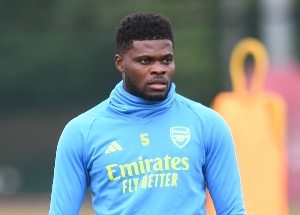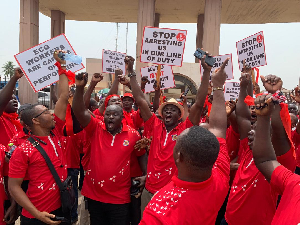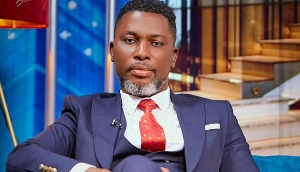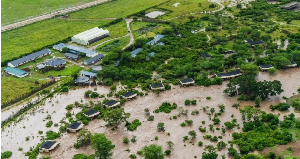- Home - News
- TWI News | TV
- Polls
- Year In Review
- News Archive
- Crime & Punishment
- Politics
- Regional
- Editorial
- Health
- Ghanaians Abroad
- Tabloid
- Africa
- Religion
- Election 2020
- Coronavirus
- News Videos | TV
- Photo Archives
- News Headlines
- Press Release
General News of Monday, 24 June 2002
Source: --
Reconciliation process lauded as panacea for stability
Akosombo (Eastern Region) -- The Chairman of the National Media Commission on Saturday described the country's national reconciliation process as a panacea for the looming threat of instability arising out of the pent up feelings of Ghanaians, who have been wronged by past political administrations.
"Ghana's political stability would be under threat without providing for a mechanism to deal with the grievances of a significant, even if minority number of citizens, who believe they or their loved ones have been subjected to organised and institutionalised violation of their dignity and their rights at the highest level of government," says Mr. Nutifafa Kuenyehia.
Mr. Kuenyehia was speaking at the formal opening of a two-day workshop on media and the national reconciliation process organised by the Ghana Journalists Association (GJA) in collaboration with IBIS, a Danish Non-governmental Organisation being attended by 50 senior Editors and Media management personnel at Akosombo in the Eastern Region.
He said reconciliation is more relevant when other peaceful means of seeking redress have been totally blocked either through constitutional indemnity for the perpetrators or by statute of limitation. "When peaceful means of seeking means of seeking redress are blocked, there is empirical evidence to suggest that violent and ultra-legal means become attractive."
Mr. Kuenyehia said the success of the work of the National Reconciliation Commission (NRC) depends, to a large extent on the way the generality of Ghanaians would perceive their work.
"Obviously the totality of the success of the work of the NRC is not dependent on the media. Yet the media can literally make and unmake the commission by the quality of its reportage, which would definitely be the basis for public opinion formation. The media should thus recognise this privileged position and use it responsibly," he said.
The NMC chairman cautioned the media against the tendency of becoming Public Relations Officers for the NRC since that would be against their constitutional duty of upholding public accountability. The President of the GJA, Mrs. Gifty Affenyi Dadzie said the sensitive and volatile nature of the reconciliation process demands circumspection and a very high sense of professionalism from the media.
" The GJA believes one of the institutions most crucial to the success of such a process is the media, as many of the citizenry and the outside would follow the process through the media. It is therefore, important that the Ghanaian media would be informed and educated about the process to enable Ghana achieve the desired results.
"As Journalists, we must ensure that only the truth is heard, read and seen of our reconciliation process. Indeed our duty to the process will be to unveil the truth and nothing but the truth, but mindful of our words and language... The GJA code of ethics has stood the test of time and should therefore, be very helpful to all of us in providing the relevant parameters."
Mr Justice Kweku Etrew Sekyi a retired Appeals Court Judge, who chaired the function asked media practitioners to desist from sensationalism, dictated by their commercial interests, since it harms the reputation of individuals and the interests of the community at large. He said the role by the media in fomenting and sustaining the genocide in Rwanda tells the sad story of how some media personnel deliberately incited people against each other.
Some of the topical issues being discussed at the workshop include "the relevance and underpinnings of reconciliation commissions: a global perspective," "fulfilling our mandate: philosophy, plans and strategies of the national; reconciliation commission," and "ethics of coverage."
There would be experience sharing of how other countries like Nigeria, Kosovo and South Africa have managed similar reconciliation processes by international resource persons.










